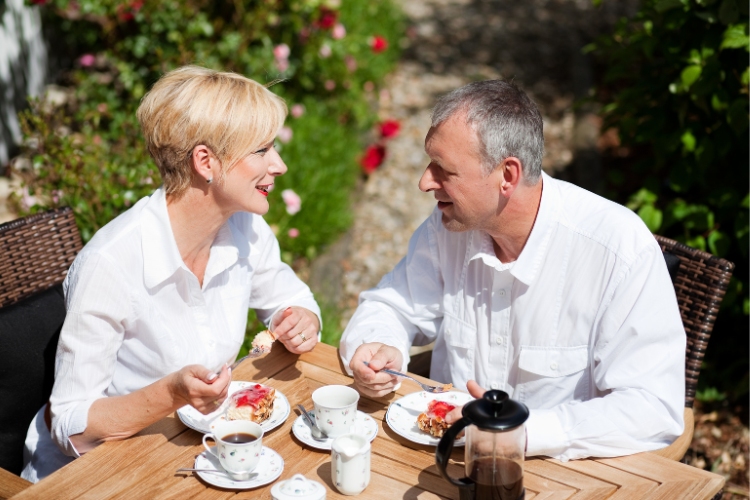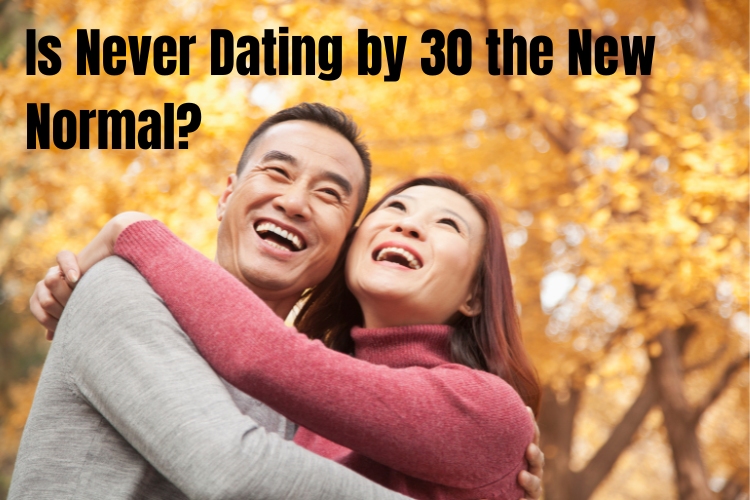In a world where societal norms and personal aspirations are rapidly evolving, the concept of dating and relationships has undergone significant changes.
In this blog post guide, you will be diving into the complexities of modern romance, examining the reasons why more people are choosing to delay or forgo dating until their 30s, and how this shift is impacting society’s perception of love, marriage, and personal fulfillment.
Key Takeaways
- Societal shifts and personal priorities are leading many to postpone dating and marriage, with a focus on career and self-development.
- There is a growing acceptance of diverse dating patterns and a move away from the pressure to follow traditional timelines for relationships.
- Men are increasingly embracing singlehood, with studies showing a significant number of men under 30 identifying as single and content.
- Experts encourage embracing love at any age, challenging stigmas associated with starting relationships later in life.
- The modern dating landscape is adapting to changes such as remote work and evolving social norms, affecting how and when people choose to date.
The Shifting Landscape of Modern Romance

The Impact of Societal Expectations on Dating
The landscape of modern romance is undeniably influenced by societal norms and expectations. Societal expectations are lower and the pressures to get married in your 20s are diminishing. This shift is echoed by Carole Lieberman, M.D., who notes that the urgency to wed in one’s youth is less prevalent today.
Self-esteem is intricately linked to dating experiences. The pursuit of ‘the one’ can lead to a cycle of hope and disappointment, impacting one’s sense of lovability and fostering a negative dating mindset.
The pandemic has catalyzed a reevaluation of personal values and standards. Individuals are now prioritizing self-worth, family, careers, and friendships over entering relationships that don’t meet their newly defined criteria.
- Understanding the current dating scene is crucial.
- Self-worth and relationship standards are increasingly defined independently of romantic involvement.
- The fear of being alone can lead to settling in relationships.
The inclination to conform to societal relationship standards often operates subconsciously, potentially causing a pattern of unstable or unsatisfying relationships.
How Career and Education Priorities Are Reshaping Relationships
In the modern era, the pursuit of career and education has taken a front seat, often influencing personal decisions about romance and relationships. The prioritization of professional and academic goals is reshaping the way individuals approach dating and partnerships.
For many, the traditional trajectory of settling down early is being replaced by a focus on personal growth and achievement. Career and education not only provide personal fulfillment but also stability and opportunities for future success.
The Benefits of Education That Will Surprise You highlight the significant advantages of prioritizing learning and professional development, including income, career advancement, skill development, and employment opportunities.
- The decline of high school sweethearts transitioning into marriage
- The increasing acceptance of singlehood as a valid lifestyle choice
- The shift in societal norms valuing education and career over early romantic commitments
The evolving landscape of modern relationships suggests that personal achievements are often valued more than the pursuit of romantic partnerships, reflecting a significant cultural shift.
This change is evident in the way that educational attainment and professional priorities now often supersede the interest in establishing romantic relationships, marking a departure from past expectations where marriage and family were seen as immediate post-education steps.
The Decline of Early Marriages and Its Implications

The trend towards getting married later in life is a reflection of deep-seated societal shifts. The ‘ideal’ age for marriage has been pushed to the late 20s or beyond, as indicated by a 2020 Gallup poll.
This change is not merely a delay in forming unions but a reevaluation of priorities, with young people often placing marriage and serious relationships on the backburner.
- The decline in teen dating and early marriages suggests a new cultural norm where personal development takes precedence.
- Establishing careers and individual identities before marriage is now seen as beneficial for a balanced partnership.
- The societal cost of this shift is debated, with varying opinions on its impact on American society.
The preference for less romance in media among young adults may signal a broader disinterest in early romantic commitments.
While some view the postponement of marriage as a negative development, others, like clinical psychologist Tara Lally, Ph.D., argue for its positive aspects. Delaying marriage allows for equal partnerships formed on the foundation of established careers and identities. This evolution in romantic timelines is reshaping not only individual lives but also the fabric of society.
The Psychology of Dating Patterns

Understanding Why We Choose Similar Partners
Our romantic choices are often influenced by a complex blend of personal history, psychological patterns, and biological factors. We gravitate towards partners who reflect our early caregiver relationships, shaping our expectations and sense of self-worth into adulthood.
Dr. Curry suggests that these formative experiences are pivotal in our partner selection process. Evolutionary considerations also play a role, with historical imperatives favoring partners who could ensure survival. This biological underpinning, while less pronounced today, still subtly informs our preferences.
The allure of the familiar can be strong, leading us to seek out partners who embody the qualities we’ve grown accustomed to.
Embracing the unfamiliar in our dating lives can be a transformative experience, offering fresh perspectives and growth opportunities.
However, experts like Julie Ingenohl emphasize the potential benefits of stepping outside our comfort zones. By dating beyond our ‘type’, we open ourselves to discovering the deeper attributes of a person, such as their character and how they might treat us in a relationship.
Breaking the Cycle: The Benefits of Dating Outside Your Type
Venturing beyond the familiar territory of a predefined type can be a transformative experience in the realm of romance. Not only can dating someone who isn’t your usual type improve your chances of finding a partner, it can also lead to a more meaningful and satisfying relationship.
By expanding your horizons, you’re not just increasing the pool of potential partners; you’re also giving yourself the opportunity to learn and grow through diverse experiences.
When we limit ourselves to a specific type, we may inadvertently perpetuate unhealthy relationship patterns. Dating outside your comfort zone can help break these cycles, offering a fresh perspective on what truly matters in a partner. It’s worth considering the following points:
- Embracing variety can reveal what you truly need in a relationship, as opposed to what you’ve been conditioned to seek.
- It challenges you to confront and overcome preconceived notions about compatibility.
- It encourages personal growth by exposing you to different viewpoints and ways of life.
Stepping out of the cycle of dating the same type of person can be a liberating journey, one that leads to unexpected and enriching connections.
Remember, the next time you catch yourself thinking, “He’s not my type,” it might be the cue to push through. Giving someone a chance despite them not fitting into your usual pattern could be the key to finding a more fulfilling partnership.
Expert Insights on Changing Relationship Dynamics

In the realm of modern romance, experts emphasize the importance of maintaining individuality within a relationship. It’s not about creating distance but enriching the bond, allowing both partners to grow not only together but also as individuals.
This approach can lead to a more resilient and dynamic partnership, capable of adapting to life’s inevitable changes. Communication is the cornerstone of healthy relationships, especially as they evolve.
Misunderstandings and assumptions can lead to conflicts, making it essential for partners to practice openness, patience, and active listening. Effective communication strategies can transform challenges into opportunities for strengthening the bond.
When conflicts become cyclical without resolution, or when intimacy declines, it may be time to seek professional guidance. This can provide the tools and perspective needed to navigate challenges and reinvigorate the relationship.
- Maintain individuality to enrich the relationship
- Foster open and patient communication
- Seek help when facing unresolved conflicts or declining intimacy
The Rise of Singlehood Among Men

Exploring the Pew Research Center Findings
Recent surveys by the Pew Research Center have shed light on the evolving patterns of singlehood, particularly among men. Nearly three in 10 U.S. adults have used a dating site or app, indicating that online dating remains a popular avenue for seeking relationships.
However, the sentiment towards dating is mixed, with 36% of respondents feeling somewhat positively and 24% expressing a very positive outlook.
The data also highlights a significant gender disparity in perceptions of single life. For instance, less than half of women (44%) view being single favorably, suggesting a divergence in how different genders approach dating and singlehood.
The interest in finding a committed partner remains steady, despite the challenges posed by the modern dating landscape.
Here’s a snapshot of the findings:
- Online dating usage: Nearly 30% of U.S. adults
- Positive outlook on dating: 36% somewhat positive, 24% very positive
- Gender disparity: 44% of women view single life favorably
These insights are crucial for understanding the current state of romance and how societal shifts are influencing individual choices and behaviors.
The Reasons Behind Men’s Increasing Singleness
The landscape of modern romance is undergoing a significant transformation, with a growing number of men embracing singlehood. According to a Pew Research Center study, 63% of American men under 30 identify as single.
This statistic is a stark contrast to the 34% of women in the same age group. The reasons for this trend are multifaceted and complex. One of the primary factors is the preference for single life. As societal norms evolve, men are increasingly finding contentment in their independence.
A Forbes article highlighted that nearly half of adults struggle with finding and maintaining fulfilling relationships, which may contribute to the preference for singlehood.
Another aspect to consider is the economic viability of men in the modern era. The rise of monogamy coincided with improved economic conditions, allowing even average men to be seen as capable providers.
However, the current social climate has shifted priorities, and many men are not actively seeking relationships due to other commitments or a satisfaction with being single.
The Brutal Truth: Why Men Prefer Being Single Today – Eightify, snippet: Many men today prefer to stay single due to difficulties in meeting the demands of women and the lack of honest communication and self-honesty from some …
The implications of this trend are profound, affecting not only the individuals involved but also the broader societal dynamics of dating and relationships.
How Contentment with Single Life is Shaping Dating Trends

The growing acceptance of singlehood is reshaping the dating landscape. Many individuals are finding fulfillment outside of romantic relationships, embracing a lifestyle that prioritizes personal growth, career ambitions, and other forms of happiness.
This shift is reflected in the rise of what Forbes refers to as the ‘NATO Dating‘ trend, where people are not attached to the outcome of dating and are content with being single. Contentment with single life is not just a personal choice but a cultural phenomenon.
As societal norms evolve, there’s a noticeable increase in the number of adults who are comfortable with the idea of not pursuing romantic partnerships aggressively or at all. This is particularly evident among women, who, with improved educational and professional prospects, have raised their dating standards, seeking partners who meet their expectations or choosing to remain single.
- The preference for singlehood is becoming more prevalent.
- Personal standards for potential partners are higher than ever.
- There’s a significant focus on self-reflection and identifying personal values.
The desire to remain single is not indicative of a deficiency but a reflection of a society that values individual choice and diverse paths to fulfillment.
Redefining Dating Success After 30

Challenging the Stigma of Dating Later in Life
The societal tapestry of romance is ever-changing, with the threads of tradition and modernity intertwining in complex patterns. The stigma attached to dating after 30 is unraveling, as more individuals embrace the benefits of mature love.
Experts like Tara Lally, Ph.D., highlight that marrying and having children later can lead to more equal partnerships, with both individuals bringing established careers and identities to the table.
The evolving landscape of relationships suggests that the timing of love is less about age and more about personal readiness and fulfillment.
While the Pew Research Center’s findings indicate that dating has become more challenging post-pandemic, the desire for committed relationships remains steadfast. This dichotomy underscores the need for a refreshed perspective on dating success:
- Recognizing the value of personal growth and career establishment before partnership
- Appreciating the depth and maturity that comes with life experience
- Understanding that love has no expiration date
Embracing this ‘new normal’ in romance requires a shift in societal perception, where late bloomers in love are celebrated rather than stigmatized.
Expert Advice on Embracing Love at Any Age

The notion that love has an expiration date is a myth that experts vehemently debunk. Love can happen at any age, and it’s essential to embrace the journey without the constraints of societal timelines.
Shanta Jackson, M.A., LPC, emphasizes the importance of letting go of the idea that you’re supposed to be in a certain place in your life by 30. Instead, she encourages individuals to focus on personal growth and readiness for a relationship.
Embracing love after 30 may require a shift in perspective. Here are some steps to consider:
- Reflect on personal values and what you seek in a partner.
- Cultivate a fulfilling life outside of a relationship.
- Stay open to new experiences and ways of meeting people.
- Practice self-compassion and patience in the dating process.
The journey to finding love is unique for everyone, and there is no ‘right’ age to find it. The key is to approach relationships with a refreshing perspective, one that values personal happiness and fulfillment over societal expectations.
Tara Lally, Ph.D., points out the benefits of marrying and having children later in life, such as established careers and identities, which contribute to a more equal partnership. This evolving understanding of relationship dynamics is reshaping how we view success in love and life.
The Positive Aspects of Delayed Marriage and Parenthood
The trend of marrying and having children later in life is increasingly viewed through a positive lens. Experts highlight the benefits of established careers and identities prior to entering into lifelong commitments, suggesting that such foundations can lead to more equal partnerships.
Delayed marriage and parenthood allow individuals to focus on personal growth and professional development, which can contribute to a healthier relationship dynamic.
The shift in societal norms has reduced the pressure to marry early, providing the freedom to choose when and with whom to settle down.
The following points outline the advantages of this trend:
- Greater financial stability and career advancement
- More life experience and emotional maturity
- The opportunity to develop a strong sense of self
- Enhanced communication and relationship skills
These factors combine to create a more resilient and understanding partnership, one that is better equipped to navigate the complexities of modern life.
Adapting to the ‘New Normal’ in Romance

How Remote Work and Social Changes Affect Dating Opportunities
The advent of remote work and subsequent social changes have significantly altered the landscape of dating opportunities. The unintended consequences of remote work are that people socialize less in real life.
Spontaneity, organic relationships, and run-ins, which often lead to romantic connections, are now almost untenable. This shift has led to the emergence of new dating trends, such as ‘NATO’ dating and the ‘relationship escalator’, which will shape the future of how we find love.
The isolation brought on by the pandemic has prompted many to engage in self-reflection, setting higher standards for potential partners. As a result, entering into a relationship is no longer seen as necessary unless those expectations are met.
Remote work has not only reduced the frequency of in-person interactions but also influenced the mental health aspects of dating. The pressure to find a committed partner persists, yet the approach to achieving this has become more introspective and deliberate. Here’s how individuals are adapting:
- Prioritizing personal values and standards
- Valuing self, family, friendships, and careers
- Delaying marriage for more robust relationships
These adaptations suggest a significant shift from traditional dating practices to a more self-focused approach to romance.
Finding Compatibility in an Evolving Dating Scene
In the quest for compatibility, the modern dating scene has transformed dramatically. No longer are mutual interests and life’s simple compatibilities the sole focus; instead, there’s a growing emphasis on mental well-being and authentic connections.
A 2023 Tinder report highlights that 75% of young singles find mental health awareness an attractive quality in a partner. As we navigate these changes, it’s crucial to understand the new rules of engagement.
The Pew Research Center’s findings suggest that while dating may be more challenging post-pandemic, the desire for committed relationships persists. This dichotomy between difficulty and desire creates a complex landscape for singles seeking meaningful connections.
The evolving landscape requires a nuanced approach to finding love, where self-awareness and emotional intelligence become as important as shared hobbies and laughter.
To adapt to these shifts, consider the following points:
- Embrace the importance of mental health in dating.
- Recognize the value of authenticity and genuine connections.
- Stay open to the changing dynamics of what makes a relationship successful.
Mental Health Considerations in Modern Dating Practices

The evolution of the dating scene has brought with it a heightened awareness of the mental health implications associated with seeking a partner. The intersection of dating and mental well-being is becoming increasingly scrutinized, as individuals navigate the complexities of modern relationships.
The prevalence of online dating, in particular, has introduced new dynamics that can influence one’s self-esteem and sense of rejection. Online dating platforms have been linked to various mental health outcomes, with studies indicating correlations between their use and levels of social anxiety, depression, and self-perception.
It is essential to recognize that the impact of dating on mental health can vary greatly among individuals. For some, the value placed on dating success can significantly affect their mental health, leading to a cycle where perceived rejection diminishes self-esteem.
The importance of maintaining mental health while engaging in the dating world cannot be overstated. It is crucial to approach dating with a sense of self-worth that is not solely dependent on external validation.
To better understand the mental health considerations in modern dating, consider the following points:
- The need for self-awareness and self-care when engaging in dating activities.
- Recognizing the signs of emotional distress related to dating experiences.
- Seeking support from friends, family, or mental health professionals when needed.
- Balancing the desire for a relationship with personal well-being and happiness.
Conclusion
As we’ve explored the shifting landscapes of love and relationships, it’s evident that the concept of never dating by 30 is not an anomaly but a reflection of broader societal changes.
Experts like Shanta Jackson and Dr. Carole Lieberman highlight that societal pressures to marry young are diminishing, allowing individuals to pursue love at their own pace. The rise in singlehood, particularly among men, and the trend towards later marriages suggest that personal growth and career development are taking precedence over early romantic commitments.
Whether due to personal choice or changing circumstances, not dating by 30 is a valid and increasingly common path. Ultimately, navigating romance is about finding what works for you, and for many, that means redefining timelines and expectations to embrace the journey of self-discovery and genuine connection, whenever it may occur.
FAQs:
Is it normal to not have dated by the age of 30?
Yes, it is becoming more common for individuals to start dating later in life. Shanta Jackson, M.A., LPC, suggests that societal expectations are changing and that love can happen at any age. There is no need to pressure oneself or feel that something is wrong for being single at 30.
Why do we tend to date the same type of partners?
Psychological patterns and past experiences often lead us to choose similar partners. However, mental health professionals advise considering dating outside of your usual preferences to break this cycle and potentially find a more compatible partner.
How has the concept of dating success changed for those over 30?
The stigma of dating later in life is being challenged. Experts encourage embracing love at any age and highlight the positive aspects of delayed marriage and parenthood, suggesting that established careers and identities can lead to more equal partnerships.
Are more men choosing to remain single?
A Pew Research Center study indicates that a significant percentage of men under 30 are single by choice, often due to contentment with single life or other commitments. This trend is contributing to changing dating dynamics.
How are remote work and social changes affecting dating opportunities?
Remote work has reduced the chances of meeting potential partners in real life, according to Carole Lieberman, M.D. This shift towards home-based work environments necessitates adapting to new ways of finding and connecting with potential dates.
What mental health considerations should be taken into account in modern dating practices?
Dating can significantly affect mental health and self-esteem. While the dating landscape is evolving, it’s important to prioritize one’s mental well-being and seek relationships that are supportive and fulfilling.

